
by BGF | Apr 29, 2019 | News
Speech analysis software could revolutionize how we diagnose mental disorders.

Listen Closely
For years, post traumatic stress disorder (PTSD) has been one of the most challenging disorders to diagnose. Traditional methods, like one-on-one clinical interviews, can be inaccurate due to the clinician’s subjectivity, or if the patient is holding back their symptoms.
Now, researchers at New York University say they’ve taken the guesswork out of diagnosing PTSD in veterans by using artificial intelligence to objectively detect PTSD by listening to the sound of someone’s voice. Their research, conducted alongside SRI International — the research institute responsible for bringing Siri to iPhones— was published Monday in the journal Depression and Anxiety.
According to The New York Times, SRI and NYU spent five years developing a voice analysis program that understands human speech, but also can detect PTSD signifiers and emotions. As theNYT reports, this is the same process that teaches automated customer service programs how to deal with angry callers: By listening for minor variables and auditory markers that would be imperceptible to the human ear, the researchers say the algorithm can diagnose PTSD with 89% accuracy.
Objective Diagnosis
Researchers interviewed and recorded 129 war-zone exposed veterans and gathered 40,000 speech samples to study. Then they used the audio to teach the AI which vocal changes correlated with diagnoses of PTSD — a slower, more monotonous cadence was an indicator of PTSD, as well as a shorter tonal range with less enunciation.
The AI, they say, can detect minute changes in the voice, like the tension of throat muscles and whether the tongue touches the lips — all potential indicators of a PTSD diagnosis.
“They were not the speech features we thought,” Charles Marmar, a psychiatry professor at NYU and one of the authors of the paper, told the NYT. “We thought the telling features would reflect agitated speech. In point of fact, when we saw the data, the features are flatter, more atonal speech. We were capturing the numbness that is so typical of PTSD patients.”
Although the AI is a breakthrough for VA clinicians, there are blindspots. By only inputting data from male combat veterans, the scope of the program’s potential is limited to men in the military — though it could be a proof of concept toward a more universal technology. As it’s refined, speech analysis could become an effective biomarker for objectively identifying the disorder, allowing clinicians to accurately diagnose veterans and give them the mental health support they need.
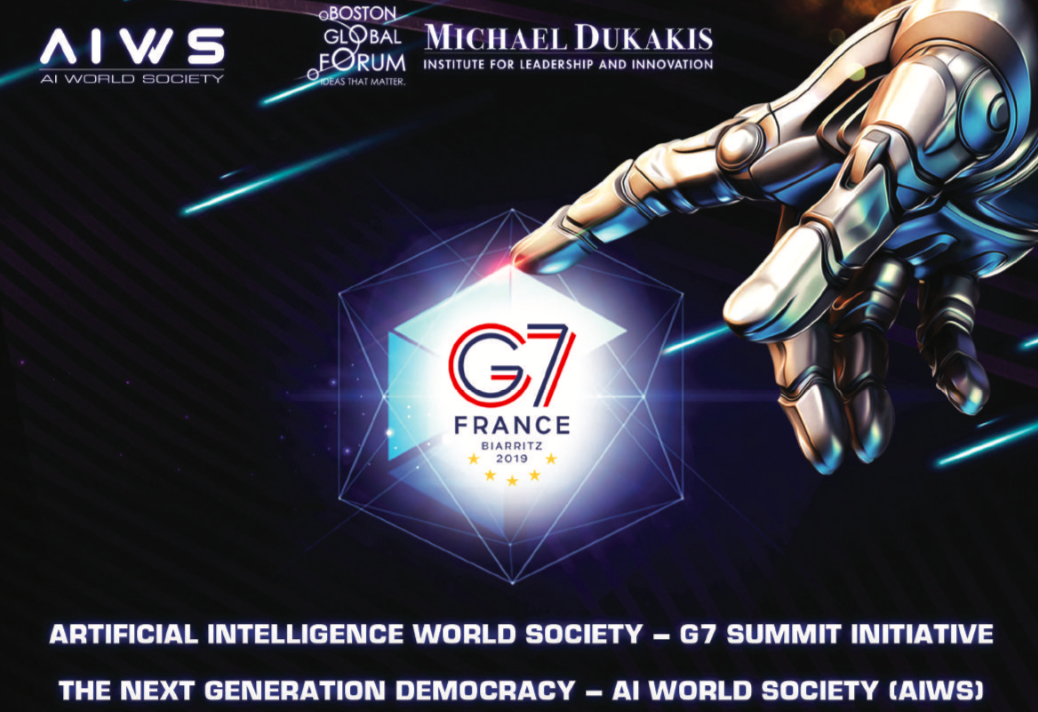
by BGF | Apr 24, 2019 | News
The AI World Society – G7 Summit Conference 2019 about AI-Standards and Government Concepts, will take place on April 25, 2019.
Please refer below for AIWS-G7 Summit Initiative 2019:
Download: AIWS-G7 Summit Initative 2019
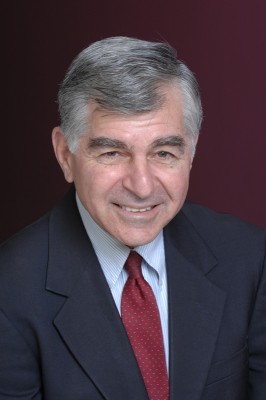
by BGF | Apr 24, 2019 | Uncategorized

Chairman of The Michael Dukakis Institute for Leadership and Innovation;
Co-Founder, Chairman of The Board of Directors and Board of Thinkers, The Boston Global Forum;
Democratic Party Nominee for President of the United States, 1988;
Distinguished Professor J.D., Harvard University
As Co-Founder and Chairman of The Board of Directors and Board of Thinker of The Boston Global Forum, Michael Stanley Dukakis culminates a half-century career dedicated to public service, political leadership, fostering the careers of young leaders, and scholarly achievement.
Together with Nguyen Anh Tuan, this former Massachusetts governor, has established The Boston Global Forum as a globally recognized think tank noted for developing peaceful solutions to some of the world’s most contentious issues, among them: fair labor practices in third-world nations, US-North Korean denuclearization negotiations, and the militarization of the South China Sea. Most recently, Gov. Dukakis has called for the ethical development and deployment of Artificial Intelligence, the Internet of Things and other 21st century Internet advances that permeate out daily lives.
To promote the work of the Boston Global Forum and to recognize those who support its goals, Gov. Dukakis co-created: “World Leader in Peace and Cybersecurity” Award; “World Leader in AI World Society” Award, and the AI World Society Initiative. Together with Nguyen Anh Tuan he also established December 12 as the annual Global Cybersecurity Day. Gov. Dukakis also coauthored, “The concepts of AI-Government,” “Ethics Code of Conduct for Cyber Peace and Security (ECCC),” and the “BGF-G7 Summit Initiative Report.”
Gov. Dukakis’s dedication to public service began modestly when he was elected Town Meeting Member in his native Brookline, Massachusetts, just outside Boston. He was later elected chairman of his town’s Democratic organization in 1960 and won a seat in the Massachusetts Legislature in 1962 where he served four terms as a state legislator. In 1970, he was the Massachusetts Democratic Party’s nominee for Lieutenant Governor and the running mate of Boston Mayor Kevin White in a gubernatorial race lost to Republicans Frank Sargent and Donald Dwight, Jr.
In 1974, he again ran for governor of the Commonwealth beating Gov. Sargent decisively in November of that year. He inherited a record deficit and record high unemployment and is generally credited with digging Massachusetts out of one of its worst financial and economic crises in history. But the effort took its toll. Dukakis was defeated in the Democratic primary in 1978 by Edward King, but came back to defeat King in 1982 and was reelected to an unprecedented third, four-year term in 1986. His colleagues in the National Governors’ Association voted him the most effective governor in the nation that year.
Gov. Dukakis ran for the presidency of the United States in 1988 but was defeated by George Bush. After announcing that he would not seek reelection as governor in 1991, he and his wife, Kitty, spent three months at the University of Hawaii where he was a visiting professor in the Department of Political Science and the School of Public Health. While at the University of Hawaii, he led a series of public forums on the reform of the nation’s health-care system that influenced the creation of Hawaii’s first-in-the-nation universal health insurance system whose lessons were incorporated into the national Affordable Care Act, championed by President Barrack Obama.
In addition to his Boston Global Forum role, Gov. Dukakis is currently a Distinguished Professor of Political Science at Northeastern University and Visiting Professor at the School of Public Policy at UCLA. Recently, he and former U.S. Senator Paul Simon authored, “How to Get Into Politics-and Why,” to provide young people with a road map to a career in public service.
As a life-long public transportation advocate, Gov. Dukakis was nominated by President Bill Clinton for a five-year term as a named to the Board of Directors of Amtrak in 1998. He served a full five-year term on the Amtrak Board as Vice-Chairman. He is often called upon to offer his expertise on rail service to Boston.
Gov. Dukakis continues to live Brookline, where he was born on November 3, 1933 to Panos and Euterpe (Boukis) Dukakis, who had emigrated from Greece and settled there after marrying. He graduated from Brookline High School (1951), Swarthmore College (1955), and Harvard Law School (1960), after which, he served for two years in the United States Army, sixteen months of which were with with the support group to the United Nations delegation of the Military Armistice Commission in Munsan, Korea.
Mike and Kitty Dukakis have three children: John, Andrea, and Kara, and are the proud grandparents of eight grandchildren.
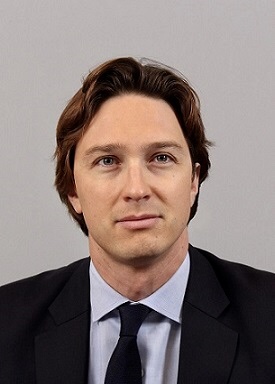
by BGF | Apr 24, 2019 | Uncategorized

Consul General of France in Boston
Prior to his assignment in Boston, Arnaud Mentré was Deputy Assistant Secretary for North America in the Bureau of the Americas at the French Ministry for Europe and Foreign Affairs (2015-2018), responsible for bilateral relationships with the U.S. and Canada.
Arnaud Mentré joined the French Ministry of Foreign Affairs in 2006 in the Bureau of strategic affairs, international security and disarmament.
From 2009-2011, he served as counsellor at the French Embassy in Moscow, and then became advisor to the Minister of Foreign Affairs, for Russian, Eastern European, and defense and security issues (2011-2012).
From 2012-2015, Arnaud Mentré served as senior counsellor and spokesman at the French Embassy in New Delhi.
Arnaud Mentré is an alumnus of the Ecole Normale Supérieure (ENS) and the Ecole Nationale d’Administration (ENA). He holds an M.A. in civil law from the University of Paris II and graduated from Sciences-Po.
He teaches global affairs at the Paris School of International Affairs (PSIA) – Sciences Po.
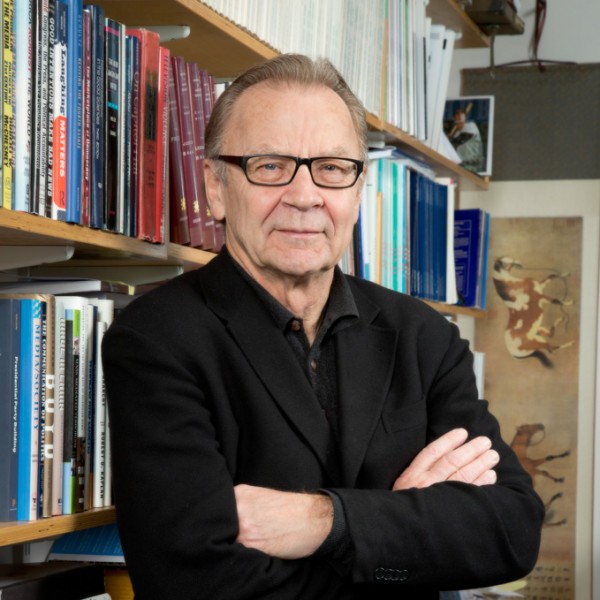
by BGF | Apr 24, 2019 | Uncategorized

Research Director of The Michael Dukakis Institute for Leadership and Innovation, Professor of Government and the Press of Harvard Kennedy School
Thomas E. Patterson is Research Director of The Michael Dukakis Institute for Leadership and Innovation. Heis a Professor of Government and the Press of Harvard Kennedy School and has served as the Acting Director of Shorenstein Center on Media, Politics, and Public Policy since July 1, 2015. His book, The Vanishing Voter, looks at the causes and consequences of electoral participation. His earlier book on the media’s political role, Out of Order, received the American Political Science Association’s Graber Award as the best book of the decade in political communication. His first book, The Unseeing Eye, was named by the American Association for Public Opinion Research as one of the 50 most influential books on public opinion in the past half century.
He also is author of Mass Media Election and two general American government texts: The American Democracy and We the People. His articles have appeared in Political Communication, Journal of Communication, and other academic journals, as well as in the popular press. His research has been funded by the Ford, Markle, Smith-Richardson, Pew, Knight, Carnegie, and National Science foundation.
Patterson received his PhD from the University of Minnesota in 1971.
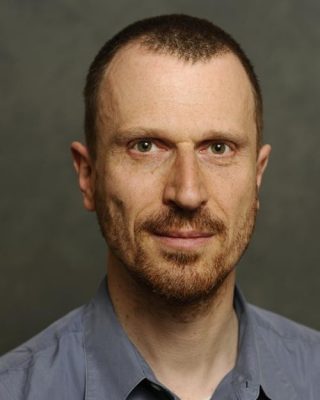
by BGF | Apr 24, 2019 | Uncategorized

Professor in Cognitive and Computer Science in the Department of Computer Science, Director of the Human-Robot Interaction Laboratory and the new Human-Robot Interaction Ph.D. program, and Bernard M. Gordon Senior Faculty Fellow in the School of Engineering at Tufts University.
Scheutz is a Professor in Cognitive and Computer Science in the Department of Computer Science, Director of the Human-Robot Interaction Laboratory and the new Human-Robot Interaction Ph.D. program, and Bernard M. Gordon Senior Faculty Fellow in the School of Engineering at Tufts University.
He earned a Ph.D. in Philosophy from the University of Vienna in 1995 and a Joint Ph.D. in Cognitive Science and Computer Science from Indiana University Bloomington in 1999.
He has more than 300 peer-reviewed publications in artificial intelligence, natural language processing, cognitive modeling, robotics, and human-robot interaction. His current research focuses on complex interactive autonomous systems with natural language and machine learning capabilities.
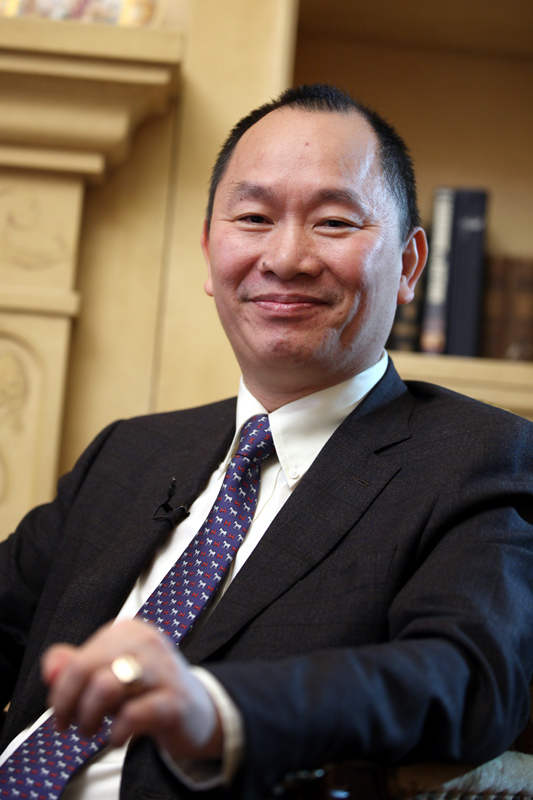
by BGF | Apr 24, 2019 | Uncategorized

Director of The Michael Dukakis Institute for Leadership and Innovation
Co-Founder, and Chief Executive Officer of The Boston Global Forum
Mr. Nguyen Anh Tuan is co-founder and Director of The Michael Dukakis Institute for Leadership and Innovation (MDI), and co-founder and CEO of The Boston Global Forum (BGF).
Tuan is recognized globally for his pivotal role as a Vietnam Government reformist, who has successfully fostered freedom-of-expression, vigorous open debate and private enterprise in a nation that has become a leader in commerce, culture, and the innovation as well as a close ally of the West.
For his AI World Society Initiative and the concepts of AI-Government he developed, Vietnam National Television (VTV) named him Person of The Year 2018.
He is the Founder and Chairman of the VietNamNet Media Group and the Founder and Editor-in-Chief of VietNamNet, Vietnam’s preeminent online newspaper. Additionally, Tuan was the Founder and CEO of VASC Software and Media Company and VietNet, the first Internet service provider in Vietnam.
In recognition of his contributions to his native country, the Government of Vietnam named Tuan one of the nation’s 10 most outstanding young talents in 1996.
Under Tuan’s leadership, VietNamNet has raised significant political issues resulting in greater Vietnamese Government transparency and freedoms. He pioneered an interactive live format called the VietNamNet Online Roundtable that allowed online Vietnamese citizens to participate in interviews with leading political, social and cultural figures as well as foreign dignitaries. In 2009, Tuan conceived of an annual global initiative making September 9th World Compassion and Reconciliation Day. Additionally, he founded and organized the Vietnam National Concert to be held annually on September 2nd, Vietnam’s National Day holiday.
In 2011, he became a Pacific Leadership Fellow at the School of International Relations and Pacific Studies at the University of California San Diego. That year he addressed the prestigious Club de Madrid Conference, a gathering of former prime ministers and presidents, in a speech titled Democracy and Digital Technology.
From February 2011 to July 2014 Tuan was an Associate of the Shorenstein Center on Media, Politics and Public Policy, John F. Kennedy School of Government, Harvard University.
He later became a Visiting Scholar at the College of Communication, Boston University for the academic years 2014-2015, and 2015-2016.
As a Shorenstein Fellow at Harvard Kennedy School in 2007, Tuan researched major trends in the development of electronic media in Vietnam.
Tuan served on the Harvard Business School Global Advisory Board from 2008 to 2016. He also serves on the Board of Trustees of the Free-for-All Concert Fund in Boston. Since July of 2015 to November of 2017 he served as Chair of the International Advisory Committee of UCLA – UNESCO Chair on Global Learning and Global Citizenship Education at the University of California Los Angeles.
Tuan is a co-founder, and Chief Executive Officer of the Global Citizenship Education Network (GCEN), a collaboration between the Boston Global Forum and the UNESCO-UCLA Chair on Global Learning and Global Citizenship Education as well as being co-founder and Former Associate Editor of UCLA’s Global Commons Review.
In an effort to enhance cybersecurity worldwide, Tuan created Global Cybersecurity Day, produced the recent BGF-G7 Summit Initiative, and coauthored the Ethics Code of Conduct for Cyber Peace and Security (ECCC).
In November of 2017, Tuan and Governor Michael Dukakis founded AI World Society Initiative, and on June 25, 2018, Tuan and Governor Dukakis, Professor Thomas Patterson, Professor Nazli Choucri announced the Concepts of AI-Government. In 2018, Tuan created the World Leader in AI World Society Award, and the AI World Society Distinguished Lecture, and became the co-author of AI World Society Ethics and Practices Index.
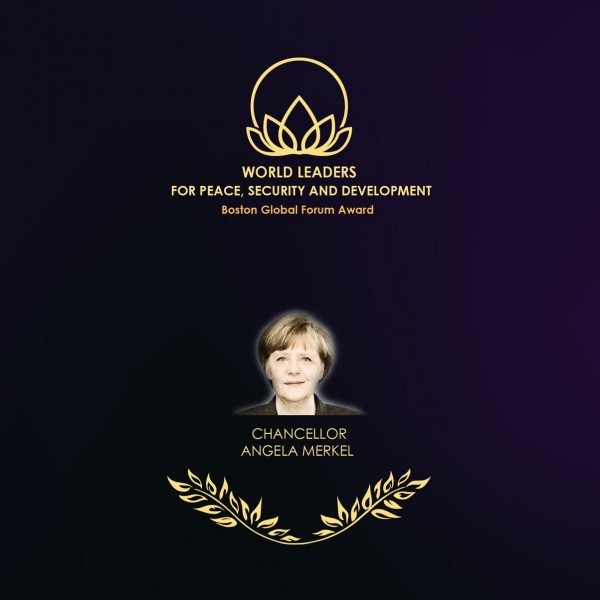
by BGF | Apr 22, 2019 | News
Angela Merkel will bid farewell to the chancellor’s office in Berlin in 2021. The outgoing president of the European Commission thinks she is “a complete and endearing work of art” who would do well in Brussels.
European Commission President Jean-Claude Juncker told Germany’s Funke Media Group on Saturday that German Chancellor Angela Merkel is “highly qualified” for a top European Union job.
Asked whether he could imagine her assuming an EU office after her term as chancellor ends in 2021, Juncker said he “could not imagine” Merkel “disappearing into thin air.”
“She is not only a person of respect, but also a complete and endearing work of art,” Juncker said.
Merkel steered the bloc through a period of economic crisis and political turbulence after becoming chancellor in 2005, earning her the reputation of being Europe’s most powerful leader.
Upon announcing her intention to step down as leader of Germany’s Christian Democratic Union (CDU), Merkel said she would not seek any other political offices after 2021. Her longtime ally Annegret Kramp-Karrenbauer has succeeded her as party leader and is widely seen as a contender for the chancellorship.

Juncker’s historic hope
Juncker will step down as the head of the EU’s executive branch on October 31 after a single term in office.
The former prime minister of Luxembourg was appointed in 2014, after the European Parliament grouping that includes Merkel’s conservatives (CDU/CSU) and the European People’s Party (EPP) nominated him for the post and won the largest share of the vote in parliamentary elections.
Asked about what he would like historians to write about his presidency, Juncker said: “He tried his best … Perhaps it would be nice to add that he put some things in order.”
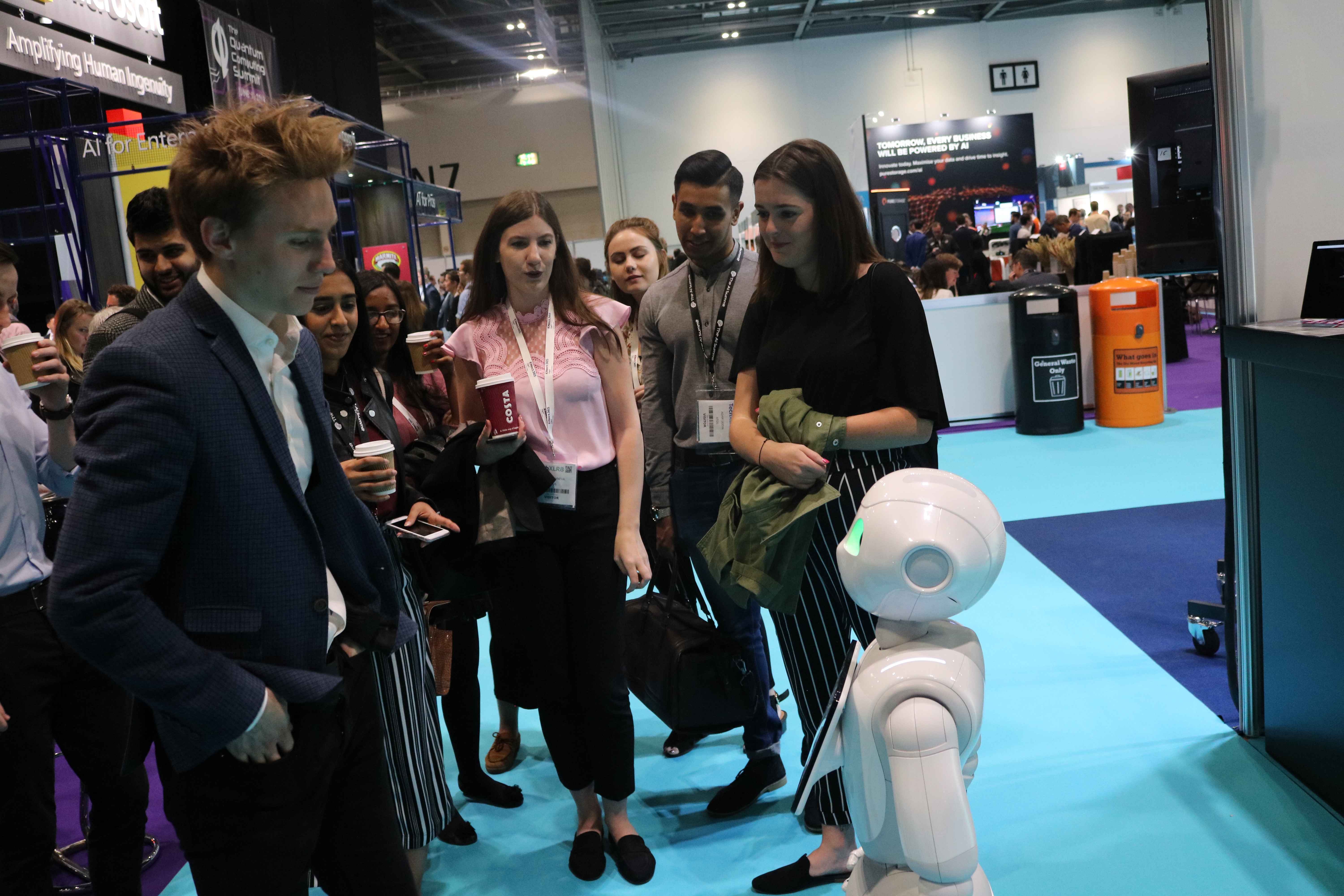
by BGF | Apr 22, 2019 | News
New York Times recently reported about the New York Summit/Leading in the Age of AI Conference in Half Moon Bay, California, where some of the top minds shared their outlooks for AI and its applications. The summit ended with a lot of room to debate about what we should do with AI ethics.
Is government regulation the answer? At least, that is suggested by Amazon and Microsoft. “Law is needed,” said Brad Smith, Microsoft’s president and chief legal officer.
Many employees of technology companies, however, think differently. They argue that the immediate responsibility rested with the company itself. “Regulation slows progress, and our species needs progress to survive the many threats that face us today”, according to the employees of Clarifai, a tech company that develops AI-powered products for the Pentagon.

Other activists and researchers like Meredith Whittaker, the co-founder of the AI Now Institute, call for both ethical actions from the company side and regulations from the government. The need for the latter is due to the forces of capitalism that continues to drive tech companies toward greater profits.
The debate about AI Ethics has gotten so divided even between the leaders of a company and its employees. Many technology companies have already created corporate principles and set up ethics officers or review boards to ensure their systems are designed and deployed in an ethical way. Still, many employees left their company because they were disappointed with the lack of actual actions. “You functionally have situations where the foxes are guarding the henhouse,” said Liz Fong-Jones, a former Google employee who left the company late last year due to the matter.
So, is ethical AI even possible?
This question remains open, but we believe that ethical AI will be impossible if we do not take into account the fact that governments of large countries have significant influences over the development of the world. Therefore, we need a framework for cooperation between major governments given the conditions of uncertainty and complexity in the AI ecosystem. For this reason, AIWS proposed a model of Government AIWS Ethics and Practices Index and look at the strategies, activities and progresses of major governments (including G7 countries and other influential countries such as Russia, China, India) in the field of AI. We hope that this effort is helpful toward a feasible solution for ethical AI.
















